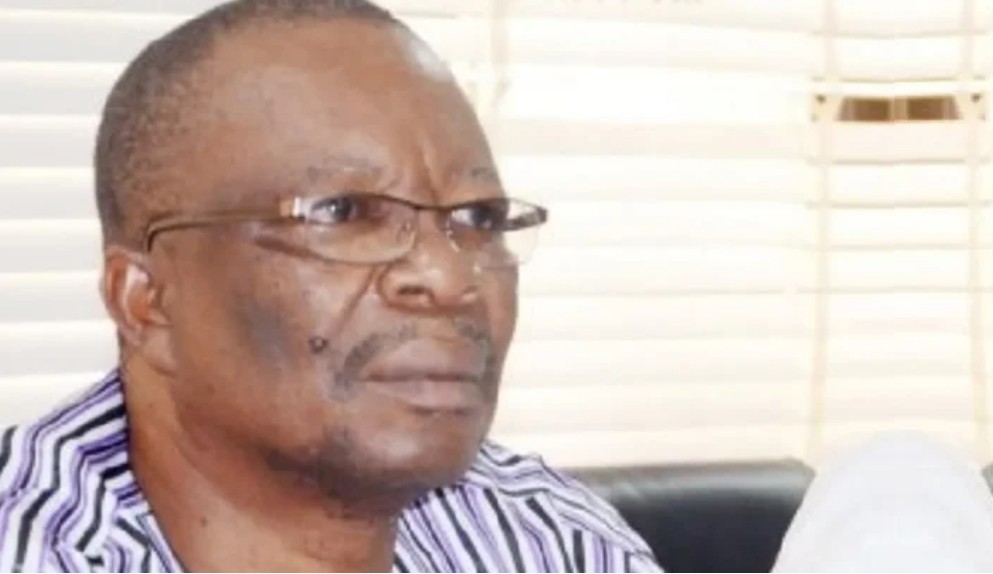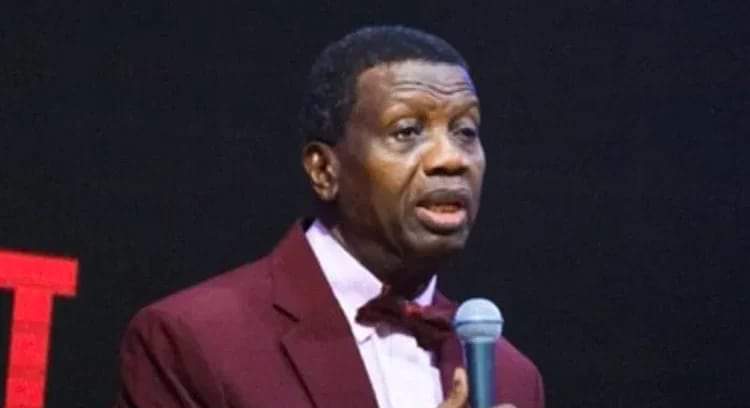Home > Opinion > (OPINION): Obvious Hypocrisy And Needles...
(OPINION): Obvious Hypocrisy And Needless Alarm Over Enugu State Mortuary Tax
By AnchorNews | 15 Oct, 2024 04:58:40pm | 126
.jpeg)
Dr. Chris Okenwe
Truly, the essence of government and governance, especially in a democratic setting like ours, is to judiciously utilize the laws and constitution of the country to better the lots of the people and cater to their welfare. It is for this obvious reason that day-to-day activities, programmes, and policies of the government are guided by the laws and constitution.
To provide the expected and desired good governance and democracy dividends, the government needs enormous revenue. In this case, political leaders are expected to put on their thinking caps on how best to use the laws and constitution to generate revenue to enable them achieve the desired development in the overall interest of the led.
Factually, the government's major source of revenue or income is through taxes. Tax is constitutional. It is a social obligation of every citizen to the government. It is as old as man. Tax evasion is criminal. It is even Biblical as we all know that one of the disciplines of Christ, Mathew, was a tax collector. This is why no serious government jokes or plays with its tax policies and implementations.
Unfortunately, since the return of democracy in Nigeria, successive governments and leaders have compromised, trivialised, bastardised and politicised the tax laws and implementations for fear of what people will say or do especially on social media platforms, not that such laws are illegal or anti-people.
This was what had engendered, promoted and sustained business as usual style of governance that compromised good governance and revenue generation sources of governments for long.
Meanwhile, when I saw the Enugu State Mortuary Tax memo being peddled on social media platforms and criticisms, controversies and condemnations trailing it, I hesitated and waited for government's clarifications or positions on the matter before discussing or dissecting it.
The elucidatory position or explanations offered by the Chairman Enugu State Board of Internal Generated Revenue Services, Mr. Emmanuel Ekene Nnamani about the issue was topnotch and unambiguous.
Nnamani said: "The attention of Enugu State Board of Internal Revenue has been drawn to various fake news and publications to the effect that Enugu State Government imposed tax on the dead to the tune of N40,000 per day. This is mischievous and wicked attempt to malign the government and Governor Mbah.
"For avoidance of doubt, the N40 daily imposed by Births, Deaths and Burial law cap 15 Revised Laws of Enugu State 2004 was part of the effort of that administration to tackle the unhealthy habit by bereaved families to congest the morgues with their dead for many months and even years in some instances.
"Unfortunately, the said N40 per night, which comes to N1,200 per month had been jerked up greedy mortuary owners and agents, who charge the bereaved families arbitrary and indiscriminate fees/ taxes which they do not even remit to government. Therefore the Board found it necessary to reiterate that the amount remains N40 as provided by the 2004 law.
"For emphasis, although the value of N40 was much higher when the law was made in 2004, government has not deemed it necessary to raise it. Government is more interested in persuading Ndi Enugu to bury their dead ones early and take time to prepare for funeral instead of leaving them in the morgues."
Obviously, the burial law has been in existence since 2004, not that it was enacted by Governor Mbah's administration. That successive governments in the state refused or failed to strictly implement the law does not vitiate its legality and constitutionality. So why the social media fuss, political and ignorant hullabaloo over it?
Surprisingly, all those who are critical and antagonistic of the law never faulted its existence, legality, or constitutionality but were ignorantly and emotionally quick to condemn its implementations by Governor Mbah's government. Why won't it be implemented by the Enugu state government when it is a law made by the state government in 2004? When has it become an offence for state government to make laws or implement existing laws of the state? There should be limits to emotions and armchair strictures on germane and genuine actions of government.
I was disappointed reading something alleged to be tweeted by Senator Shehu Sani on his social media handle criticising the implementation of the law. How can a one-time senator and also one-time governorship candidate of a party in his state openly criticise the implementation of an existing law of a state on social media like a hireling? It is not possible unless the Senator is mischievous or ignorant of the law.
Even as a Muslim, Senator Sani knows the Muslim corpse has no business with mortuary because it is against the religion. Why should Senator Sani be supportive of Christians keeping corpses in mortuary even when Jesus Christ and other great Christians were never kept in the mortuary when they died?
It was late Anambra State born highlife musician, late Morocco Maduka, who sang the music that if you know what you can or want to do for me when I am dead, do it for me when I am alive so that I can appreciate you better.
Of what importance is keeping a corpse in mortuary for too long and paying the mortuary owner in the name of preparing for befitting burial, when in most cases you didn't help or take care of the person when she or he was alive? If not for pretence, hypocrisy and business of raising funds from people through the burial, why should one engage in such frivolity of keeping corpse in a mortuary for too long, when it is cheaper and safer to bury it immediately and prepare for funeral ceremonies later?
If one can afford to pay mortuary owners or attendants who are doing their private business on a daily basis to preserve the dead, why can't the government be paid tax as well? Thank God the Enugu State 2004 burial law is not too strict or stringent because the bereaved has the option of burying the dead immediately and preparing for the funeral ceremony later. Mind you that the greatest honour and respect that can be given to dead is to bury him or her immediately. There is no justification keeping the dead among the living for too long.
Mbah's administration deserves support and commendations and not criticisms for implementing the Burial Law of 2004 in the state. The implementation of the law will reduce expenses, undue competition, and class struggle among the bereaved families that are preparing burials. It will also reduce health hazards associated with the corpse. It will generate revenue for mortuary owners and government as well. It is a win-win situation.
Lest we have forgotten that many people have been indebted for years after organizing the so-called befitting burials for their deceased ones for no reason other than to impress the people. Many have encountered a lot of avoidable challenges and risks while preparing for needless and elaborate burials of their relations.
It would be recalled that it is for these reasons and many others that in Anambra State in 2019, in order to reduce or stop completely extravagance, profligacy, undue pressure, economic wastages, needless expenditures, avoidable risks and other concomitant challenges that often characterise and trail burial/ funeral ceremonies in the state, the Anambra State House of Assembly had in 2019 passed into law Anambra State Burial/ Funeral Ceremonial Law which was signed into by the then Governor of the state, Chief Willie Obiano.
Expectedly, mixed reactions and feelings trailed the passage of the law and its implementations. But such didn't make the Anambra state government repeal the law, having been convinced that it is beneficial and in the interest of the people and government of the state.
Prominent among the provisions of the law is the one that says corpes are not to be deposited in the morgue beyond two months from the date of death and that any person who contravenes this shall pay a fine of N100,000 or serve imprisonment term of six months or both. All the mortuary attendants are to report to Anambra State Ministry of Health any corpse that has stayed beyond two months from the day it was deposited.
On assumption of office, Obiano's successor and Governor of Anambra State, Prof. Charles Soludo reiterated his government's commitment to strict implementation of the burial/ funeral ceremonial law.
Living by example and walking his talks, Governor Soludo in December 23rd, 2023 buried his late dad, Pa Simeon Soludo in strict compliance and adherence of the 2019 Anambra State Burial/ Funeral Ceremonial Law to the surprise and commendations of many within and outside Anambra State. There were no billboards, invitation cards, posters, souvenirs, and others that were prohibited by the law.
If Governor Soludo, who can afford to organize one month befitting burial for his late dad, could strictly abide by the Anambra state burial law in burying his father last year and had continued to ensure that the law is obeyed in the state, why the social media mudslingings and attacks of Governor Mbah's administration for implementing existing Mortuary Tax law of 2004, that discourages keeping of corpse in mortuary for too long in the name of needless preparations for befitting burial that is neither here nor there?
Meanwhile, looking at the numerous and massive infrastructural projects Governor Mbah's government is executing across the length and breath of the state, there is no doubt that he deserves all the revenue his government can constitutionally generate in the state to enable him complete these projects for the benefits of the people of the state that voted him into office and have remained supportive of his performing and workaholic government.

Leave a Reply
Your email address will not be published. Required fields are marked *
Category
 Crime & Security
Crime & Security.jpeg) Interviews
Interviews Business & Economy
Business & Economy Opinion
Opinion Culture & Tourism
Culture & Tourism Entertainment
Entertainment Education
Education  News
News Health
Health Politics
Politics Technology
Technology Religion
Religion  Sports
Sports